Awakenings: Belarus Free Theatre and the basketball star
On a new show about political awakening performed by one of Belarus' biggest sporting stars.
I’m writing this in a coffee shop in Berlin, a city I find myself drawn back to again and again, like so many people, because of its rich cultural scene. Right now this is facing an existential threat because of significant cuts to the cultural budget which came into force at the start of the year. Here’s my article for The Stage (written before Elon Musk so vigorously inserted himself into German politics) about why the way these cuts have been implemented is concerning.
Also in The Stage this week is my piece on how you grow an international career as director from the UK, for which I spoke to several directors, including Rikki Henry, about his experiences of the German-speaking scene, and Daniel Goldman, a true internationalist, about working in China. What opportunities are out there? What’s it like making work in a language you don’t speak?
If you want to support my writing while keeping this site largely paywall-free (though there will be occasional paid subscriber bonus posts, like this recent one on London theatre), you can do so for just £5 a month or £50 a year. Or just share this newsletter with someone you think might find it interesting. That helps too
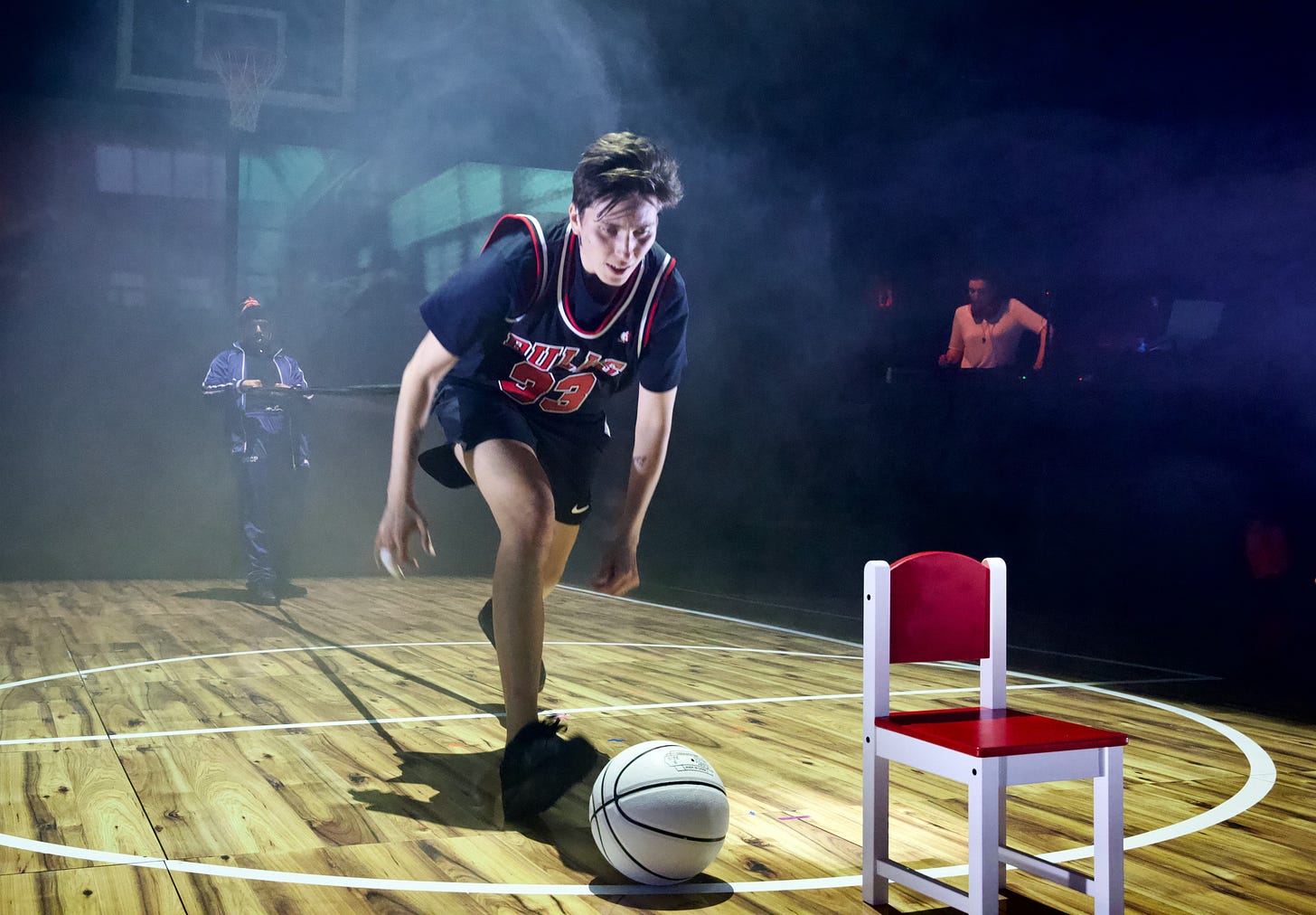
On Sunday, Alexander Lukashenko secured a seventh five-year term as Belarusian president. Once dubbed "Europe's last dictator," he has ruled Belarus since 1994, is closely allied to Putin and Russia, now more than ever, and his regime is regarded as one of the most oppressive in Europe. There was little doubt he would win. He always wins. This time around he reportedly secured 86.8% of the vote.
For twenty years now Belarus Free Theatre have been making furiously political work, despite being outlawed in their home country, while also campaigning tirelessly to alert the world to the situation in Belarus. The company’s new show KS6: Small Forward, which premiered last year at LaMaMa in New York (here’s TheaterMania’s review), is something of a deviation from their previous work in that it’s about professional sport, but it’s also very much a BFT show, exploring the political awakening of professional Belarusian basketball player Katsiaryna Snytsina.
Snytsina also stars in the show. It’s rare for a professional athlete of Snytsina’s calibre – she has represented teams in France, Russia, Poland, Turkey, Hungary and, until recently, she was a forward for the London Lions – to tell their story on stage in this way, explains Natalia Kaliada co-director of the show and co-founder of Belarus Free Theatre
They first met Snytsina in a speakeasy style bar Lithuania between lockdowns. While BFT’s co-director Nicolai Khalezin recognised her immediately, Kaliada remembers being impressed by this strikingly tall woman. That first meeting set them off on a journey that resulted in them making a show together.
Before 2020, Snytsina lived in “a bubble of basketball” and was only dimly aware of the oppressive system under which she lived. A famous sportswoman, her career had allowed her to travel the world, but this also made it easier to turn a blind eye to conditions in her home country. Lukashenko had been in power since she was child; she could hardly remember things being any different and the worst of the regime’s abuses went on behind closed doors, explains Kaliada. “It was not happening in front of your eyes.”
Things changed in 2020. Following the elections in August of that year, in which Lukashenko unsurprisingly gained a sweeping majority and a sixth term in office, there were widespread protests across the country. These gained a surprising amount of traction, before being brutally supressed. Snytsina could no longer ignore what was going on. She posted “Stop the Violence” on social media, which was enough for her to be considered a dissident. She too now lives in exile and, having retired from the sport, she’s making the shift to theatre to share her story and help her country.
The resulting show KS6: Small Forward marks Snytsina’s first time on a theatre stage, it’s also the first time that BFT have worked with an athlete. (They’ve done some work with refugee teenagers, but usually work with professional actors). Throughout the process of making the show, Kaliada was struck by the “incredible discipline, incredible stamina, and incredible concentration” of those who work in professional sport.
The show is structured like a basketball game, explains Kaliada. “American sport is pure entertainment,” and the show is intended to be entertaining too – there’s an onstage DJ - but it’s also a show about political transformation, and what it took for Snytsina to reach the point in her political journey where it was possible for her not just acknowledge she lived under a dictatorship, but that if she wanted things to change she needed to use her position to speak out, says Kaliada, for her to stand up and say: “I support my society. I will do everything in order to change things from dictatorship to democracy.” It’s a piece about the personal reflection you need to do in order to reach that point. (In this, the piece feels close in spirit to Alone, BFT’s documentary about rock star Andrei Khluvniuk, the front man of the Ukrainian band Boombox, and his gradual metamorphosis into an activist and campaigner for the release of political prisoners).
Snytsina is also a gay woman – the first ever sportsperson from her country to come out - which led to her being dubbed an “extremist lesbian” in Belarus, and the show also explores the role her sexuality plays in her story.
Founded in 2005, Belarus Free Theatre has been described by the New York Times as “one of the bravest and most inspired underground troupes on the planet.” For years they operated underground in Belarus, staging work in apartments, warehouses, forests and tunnels. Audiences and performers risked harassment, police raids, and arrest. To avoid this, they kept the locations of performance secret only communicating it to the audience via text message. They made work that explicitly engaged with the realities of life under a dictatorship, their shows blurring the line between art with activism. Kaliada and Khalezin were eventually forced into exile in 2011, where they continued to promote artistic freedom, gaining high profile supporters in the process including Tom Stoppard and Emma Thompson, and continuing to make work, directing their ensemble from afar.
In 2015, when the company were marking their 10th anniversary, they presented their London audience with the opportunity to briefly feel like what it was to watch a show in Belarus (without the threat of arrest). In the Staging a Revolution festival, audience members were escorted to a secret venue each night to watch a show before talking about the issues with activists over Belarusian food and drink. Food has often played a central role in their work, perhaps most notably in The Master Had a Talking Sparrow, a show set in a living room in which the audience and actors eat a full meal together, while the lively vodka-fuelled dinner table conversation veers into places that might in other circumstances be taboo, like the Soviet atrocities of the Second World War, a topic that had all but been erased from history in Belarus. The dinner table was perhaps the only place where these things could safely be aired. (I wrote about the show’s London incarnation here, but it’s worth reading this piece by Andrzej Lukowski who saw the show in Minsk).
This show was inspired by the underground dinner parties that spread through Soviet Belarus in the 1990s, which also provided the inspiration for their Kitchen Revolution supper club in which food was mixed with political debate.
Early in 2020, having followed the company for some time, I travelled to Minsk – I wrote about my experience in the Guardian - to watch Dogs of Europe, their three-hour adaptation of Alhierd Bacharevic’s 2017 dystopian novel, in a huge warehouse. Although the location of the performance had been leaked, it felt as if there was a very grudging tolerance of their activities in Belarus at that point. That almost immediately changed. As theatres began to shut down across Europe in response to the Covid-19 pandemic, Lukashenko was still urging his citizens to combat the virus with vodka (something reported on as joke in a lot of Western media and not a serious threat to public health). BFT, however, immediately halted live performances and found news ways of connecting with audiences. Then in August, the country went to the polls. After Lukashenko declared victory, the country witnessed its biggest protests in modern history.
Many people were beaten and arrested, including Svetlana Sugako, BFT’s managing director, who was held for five days. The protests lasted longer than many anticipated, but eventually they were suppressed, with Lukashenko clamping down even harder on dissent. By the following year, having operated underground for so long, it was decided that the entire ensemble should relocate from Belarus. They were worried that any day now the KGB would come knocking on their door. It was no longer safe for them to stay.
When I next met the company, it was days after the full-scale invasion of Ukraine in February 2022, something Kaliada and Khalezin had long expected and warned against. Many company members had family and friends living in Ukraine, so they were in the emotionally fraught process of trying to help evacuate them from the country, while also rehearsing their most technically complex show to date for its run at the Barbican Centre. (This juggling act is typical of how they often have to operate).
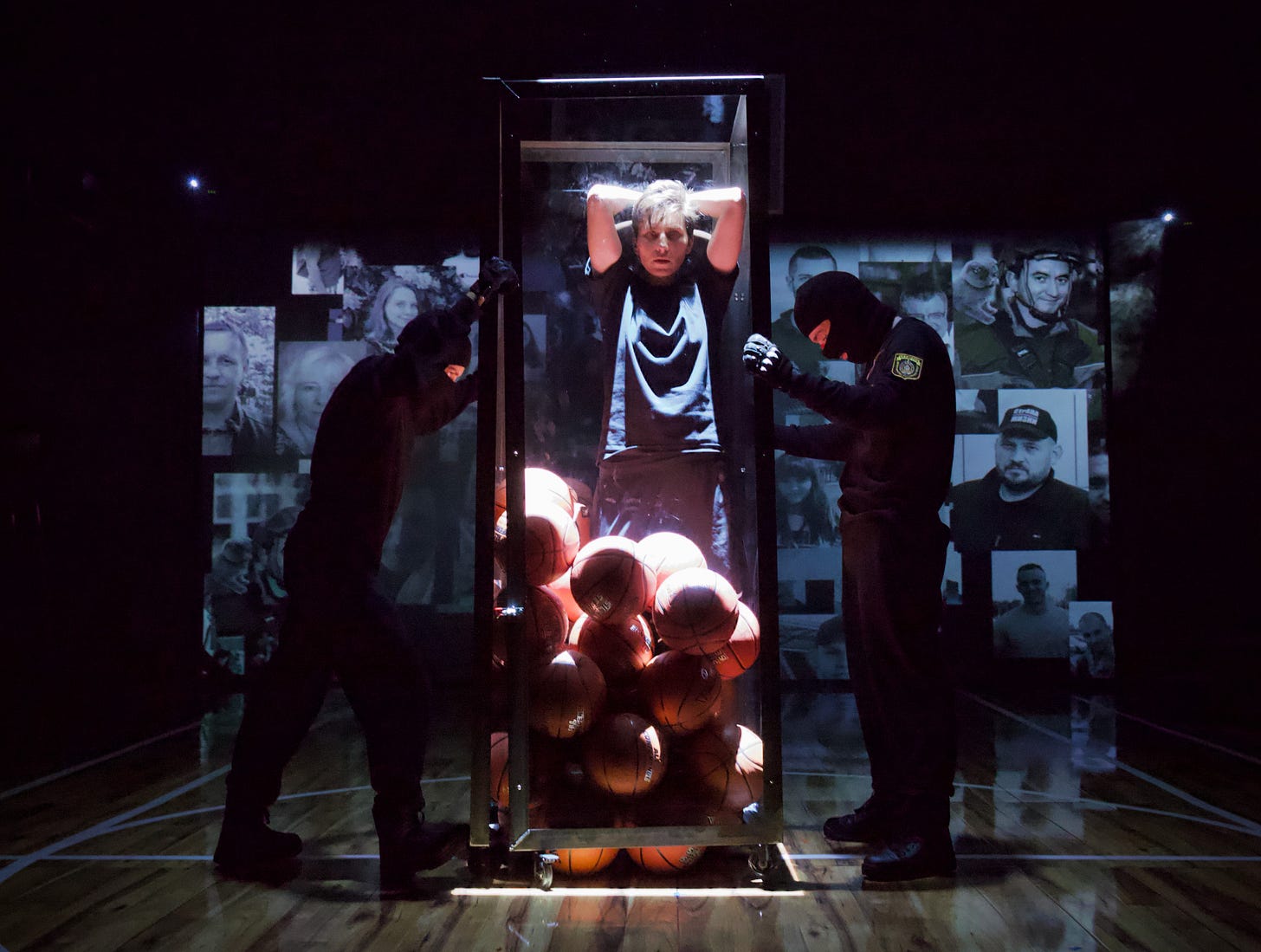
Many of the company member ended up in Poland where they swiftly set up a theatre school for refugee teenagers and started putting on shows with them (and their parents). I saw the first of these pieces in Warsaw in 2023, and it was very moving watching these teens, many of whom had been doubly displaced, from Belarus to Ukraine and then to Poland, using theatre to explore not just their feelings about being a refugee - that was almost secondary - but their anxieties about growing up, about school, about parental pressure.
Since they’ve been living in exile in the UK, Kaliada and Khalezin have watched the gradual erosion of freedoms and the rise of authoritarianism in the West. No sooner had they arrived in London, then it started to feel as if things started to go backwards, says Kaliada. This is something she can’t understand (“millions of lives have been lost for humanity to achieve these things, why do we need to destroy it?”) but she feels her first few years in the UK, before Brexit, before Trump’s first term in office, were the last moments of freedom before things started to unravel. Maybe they were better placed to appreciate this having lived under a dictatorship for so long? (“Artists are the best X ray machines of society,” Kaliada often says.) Nonetheless, many of the things they’ve been warning against have come to pass. They’d be well within their rights to say: ‘I told you so.’ Instead, they continue to make art that is at once a warning bell and a rallying cry, a demonstration of what can happen if “we, as humans, could overcome these imposed limits on ourselves,” whether that’s a sports star deciding to become a theatre actor, or someone looking around them and deciding that enough is enough, they need to take action, they need to take a stand.
That’s partly why Kaliada likes the title of the show so much. A small forward is a basketball position (“a very beautiful position”, she says) that requires a lot of versatility and coordination as a player, but it is also the way in which change happens, one small step forward after another. That’s what the show is about, at heart, “one woman who stood up and decided to move forward.”
KS6: Small Forward is at the Barbican Centre, London, from 5th-8th February
This week in European theatre
A round-up of festivals, premieres and other upcoming events over the next seven days
The Glass Menagerie - The British director Jaz Woodcock-Stewart was the subject of a recent newsletter for her process-led project The Attempts. Now she follows her production of Jason Medea Medley, which opened at the Dresden Staatsschauspiel in 2023, with her second German-language production, a new staging of Tennessee Williams’ play for Theater Basel, which opens on 30th January
Long Day’s Journey into Night – German theatre has a real thing for Eugene O’Neill’s semi-autobiographical behemoth at the moment. There have been recent productions at Staatsschauspiel Dresden and Staatsschauspiel Nürnberg. Now it’s the turn of Sebastian Nübling to take on the saga of the multiply dysfunctional Tyrone family, in a production which premieres at Deutsches Theater in Berlin on 30th January.
Boško and Admira - The image of a young couple, a Bosnian Muslim woman and Bosnian Serb man, laying dead in each other’s arms, having been shot by a sniper became one of the iconic images of the Bosnian war. The couple were labelled the “Romeo and Juliet of Sarajevo” and they gained a kind of terrible fame in death. Slovenian director Živa Bizovičar uses this as a jumping-off point for a production exploring the ethics of war photography, which premieres at the Mladinsko Theatre in Ljubljana on 31st January.
Thank you for reading. If you have any recommendations, tips, or thoughts about this newsletter, you can reach me on natasha.tripney@gmail.com




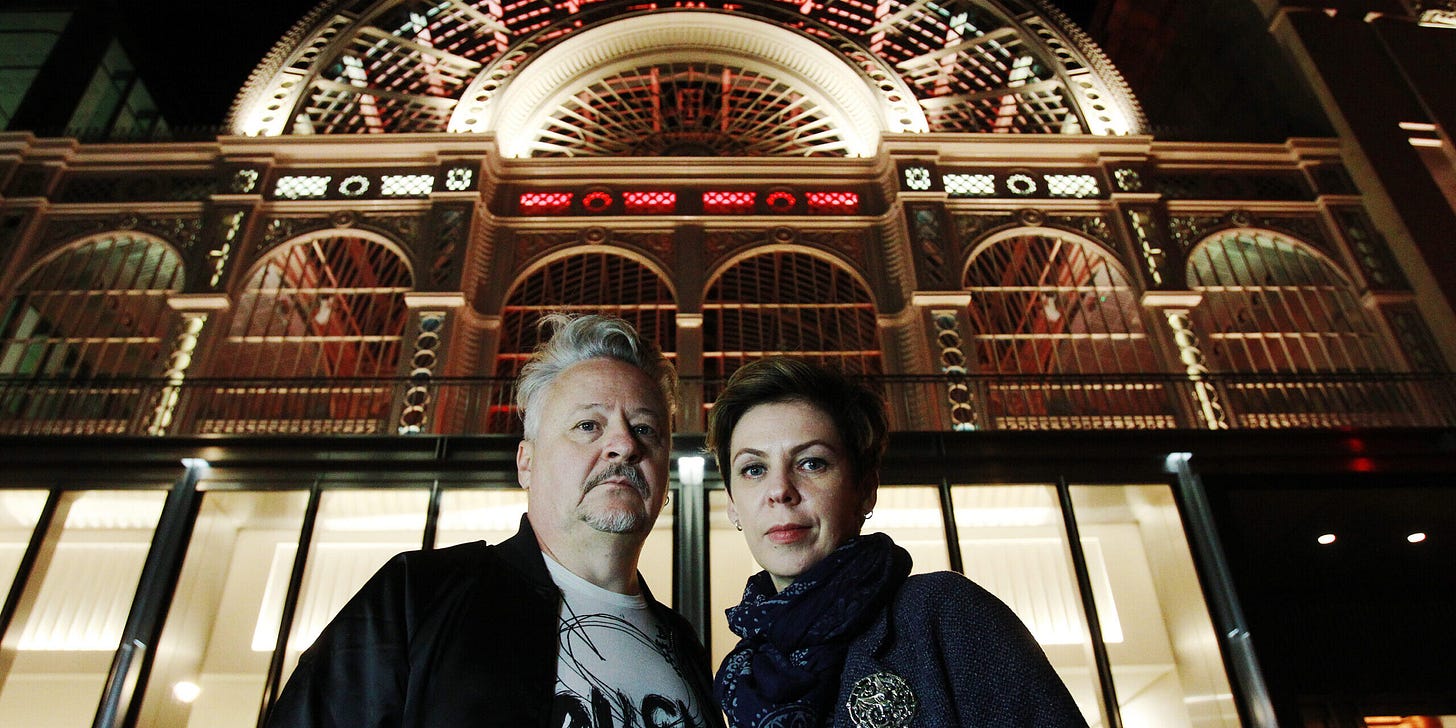
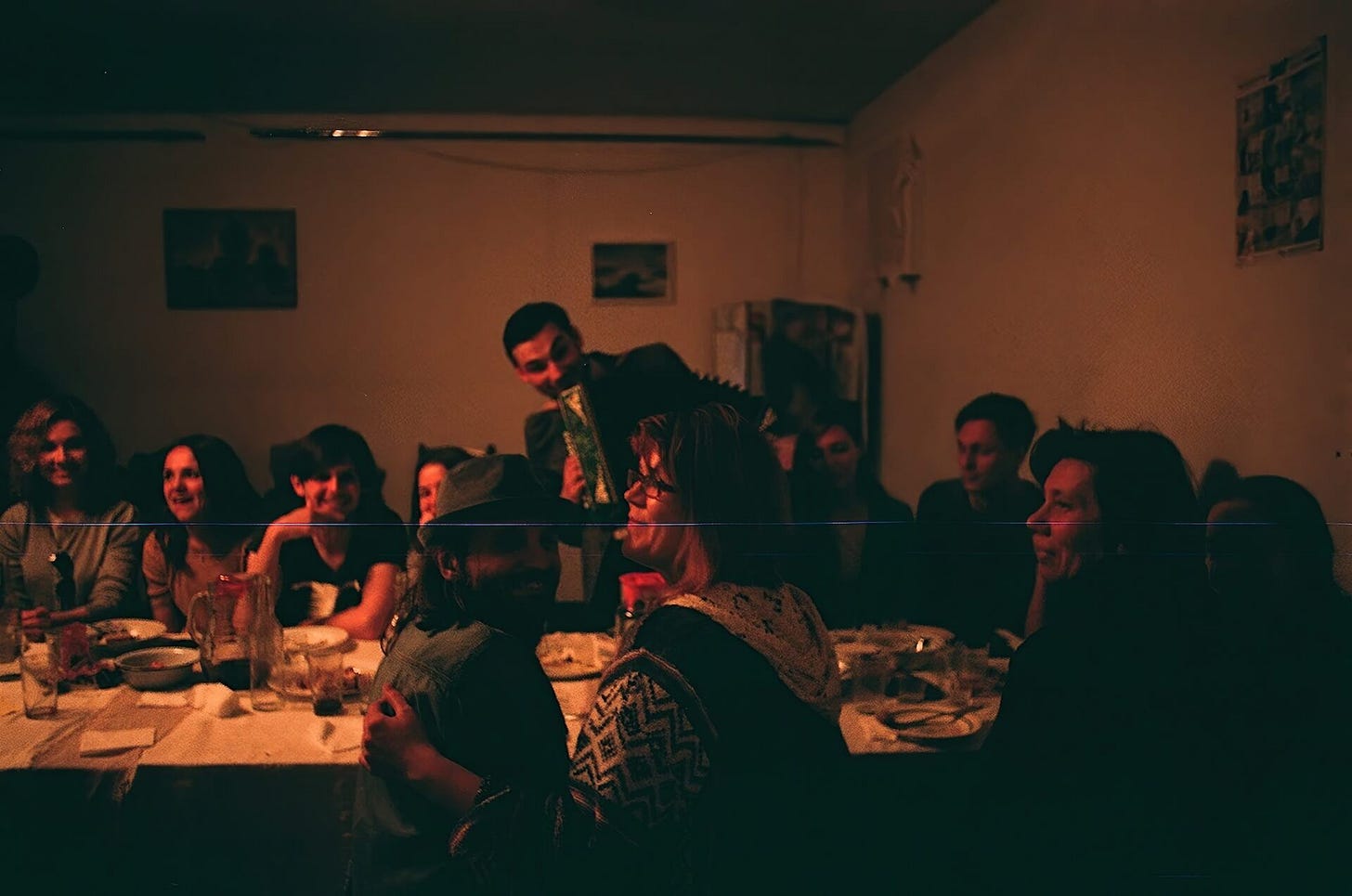
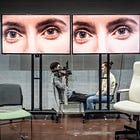
How incredibly relevant! The courage and the commitment to THEATRE inspires me as a Theatre professional. Thank you.
Bravo! Great piece, Natasha! Exhilarating and frightening. Thanks for all the links as well!